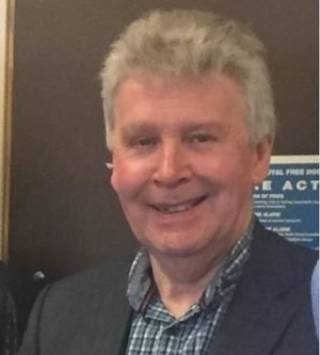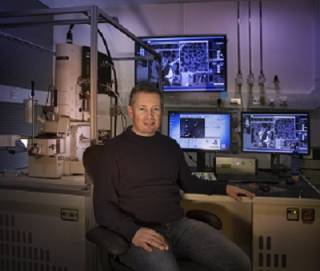The ICREC was founded by Paul Hardiman, Director of the Royal Free Hospital Ovarian Cryopreservation Service, Barry Fuller a leading expert in cryobiology at University College London and Roland Fleck (Director of the Centre for Ultrastructural Imaging at Kings College London) to explore the fundamental processes occurring as ovarian tissue is cryopreserved, thawed and transplanted and apply this knowledge to improve the efficiency of this procedure when used to preserve fertility in female patients who are scheduled to receive chemotherapy or radiotherapy which may cause significant gonadal damage.

Paul Hardiman, Associate Professor, Institute for Women’s Health, UCL, leads the Reproductive Medicine clinic at the Royal Free Hospital and is a Consultant in the Fertility clinic at the Whittington Hospital. In collaboration with Barry Fuller and Mark Lowdell, Professor of Cell and Tissue Therapy at UCL and director of the Centre for Cell, Gene and tissue Therapeutics laboratory at the Royal Free hospital, Paul has been researching ovarian tissue freezing since 2010. He established the clinical ovarian cryopreservation service at the Royal Free Hospital which opened in February 2019, receiving referrals from NHS clinicians in England and Wales.

- low temperature preservation of cells
- tissues and organs for clinical applications
- effects of ischaemia / reperfusion injury in surgery
- organ-specific metabolic effects of chemotherapy
- surgery and transplantation.

- 3D ultrastructural context of ovarian tissue
- a direct measure of intracellular ice presence and location
- the degree of dehydration of cells within tissues.
Differential Scanning Calorimetry can be used to explore extracellular and intracellular glass transition events occurring between the homo or heterogeneous freezing point and target storage temperature.
Our mission is to utilise the advances in cryobiology which have been made since the proctocols developed more than 20 years ago to understand the cellular and subcellular effects of slow freezing and vitrifying gonadal tissue. This understanding can be rapidly translated to clinical practice to improve the efficacy of the ovarian and testicular tissue when used to for fertility preservation.
 Close
Close

